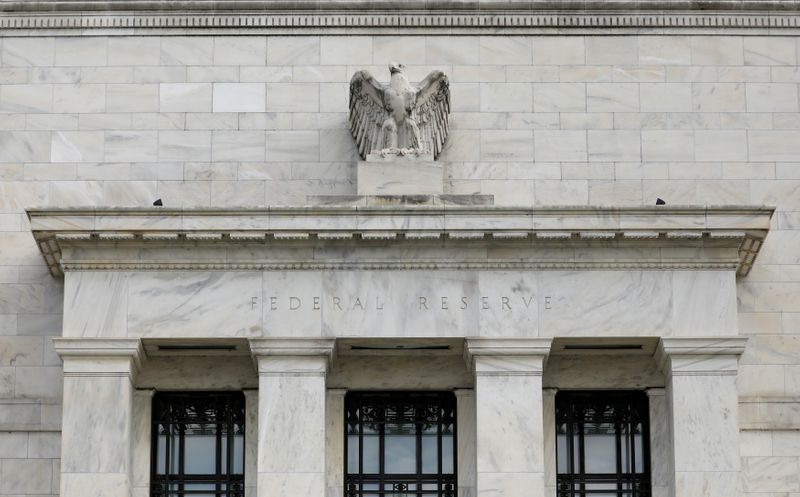By Kate Duguid and Ann Saphir
NEW YORK/SAN FRANCISCO (Reuters) -Investors hoping the U.S. Federal Reserve would make a concerted push into longer-duration bonds at Wednesday's meeting did not get what were waiting for.
A recent ramp-up in 10- and 30-year Treasury yields raised expectations that the Fed would announce after its monthly policy meeting a plan to buy more long-dated debt to cap yields, which could have been done by shifting purchases to the long end.
That did not happen.
Instead, the Fed said it would maintain the current pace and duration of its bond purchases and pledged to continue its quantitative easing operations until the U.S. economic recovery makes substantial progress.
Chair Jerome Powell said the central bank was not ready to commit to adjusting the duration of its Treasury purchases.
The yield curve steepened briefly after the announcement.
The steepening made sense, said Gennadiy Goldberg, senior U.S. rates strategist at TD Securities, as a portion of the market had been expecting an extension.
"The macro economy tracks better than they must have expected, there is favorable news on vaccine development, and now fiscal policy seems likely to provide impetus," said Vincent Reinhart, chief economist at Mellon. Extending the duration of asset purchases, let alone increasing the pace of purchases, is off the table for now, he added.
"They'd have to see an evident problem, and a 10-year Treasury below 1% is not an evident problem," Reinhart said.
At Wednesday's press conference, Powell said buying more long-dated debt was not "high on our list of possibilities."
Still, when questioned about the possibility of a future adjustment, Powell said the central bank remained open to change.
"We remain open to either increasing the size of our asset purchases if that turns out to be appropriate, or to just moving the maturities, moving to buy longer maturities because that also increases accommodation by taking more duration risk out of the market."
Current asset purchases of $120 billion a month provide strong accommodation already, Powell said. With COVID-19 cases on the rise and a vaccine rollout just beginning, the economic recovery hinges more on a fiscal package to support small businesses and households out of cash, he suggested.
A time may come for more and longer-duration Treasury purchases and it "may be an option for future meetings," said Rick Rieder, chief investment officer of global fixed income at BlackRock (NYSE:BLK), which manages $2.5 trillion in such assets. This is particularly true if fiscal policy efforts disappoint, or a second wave of lockdowns hurt the economy more than many expect, he added.
Steve Englander, head of global G10 FX research and North American macro strategy at Standard Chartered (OTC:SCBFF), had expected the Fed to ramp up its bond purchases.

But Powell was "clearly signaling that the triggers for slowing bond purchases are a long way off," he noted.